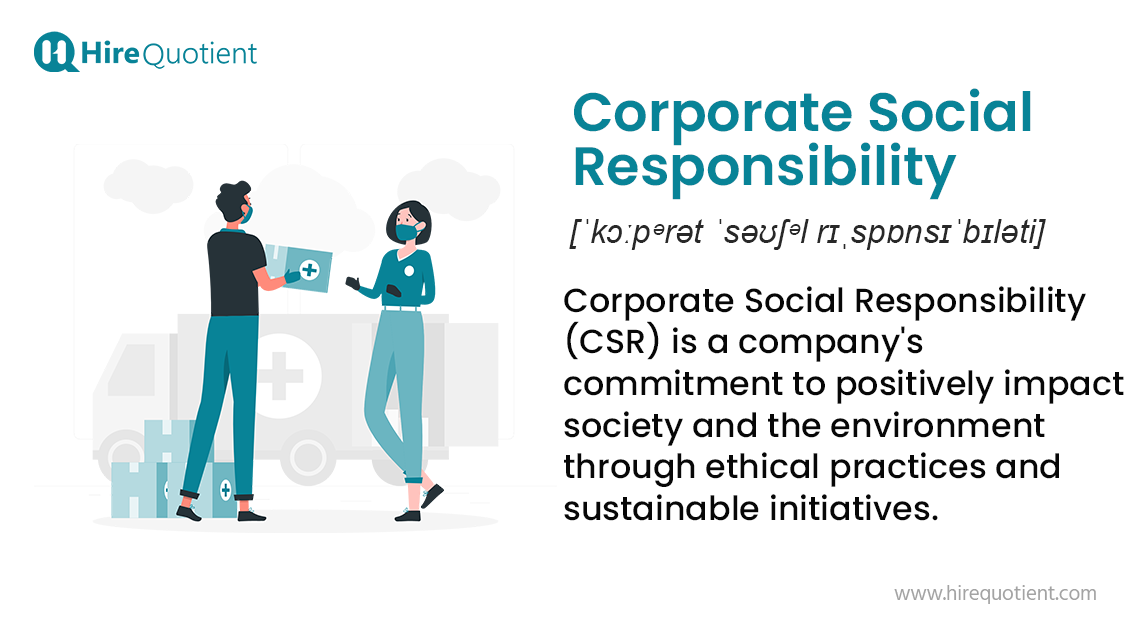
The growing skills gap in the workforce poses a significant challenge for businesses globally. Rapid technological advancements, automation, and the evolving nature of work have made it increasingly difficult for organizations to find employees with the necessary skills. To remain competitive and future-proof their operations, businesses are implementing various strategies to bridge this skills gap. Here’s how companies are addressing the skills gap in the workforce:
1. Upskilling and Reskilling Programs
One of the most direct ways businesses are tackling the skills gap is through upskilling (improving existing skills) and reskilling (training employees in entirely new skills) initiatives:
- Internal Training Programs: Companies are investing in comprehensive training programs to help current employees develop new competencies. These programs include workshops, online courses, and mentorship programs focused on critical are...

Corporate Social Responsibility (CSR) has evolved from being a voluntary activity to a strategic priority for many businesses. In today's global market, CSR is not just about philanthropy; it’s a critical element of a company’s business strategy that can drive long-term value. Companies that integrate CSR into their core operations are better positioned to build trust with stakeholders, enhance their brand reputation, and create a positive impact on society while also benefiting their bottom line. Here’s a closer look at the role of CSR in business strategy:
1. Building a Positive Brand Reputation
CSR plays a vital role in shaping a company’s image and reputation. Consumers, employees, investors, and other stakeholders increasingly expect businesses to act responsibly and contribute positively to society. Companies that demonstrate a genuine commitment to social and environmental causes tend to build stronger relationships with their stakeholders:

Businesses across various sectors are increasingly leveraging artificial intelligence (AI) and machine learning (ML) to drive innovation, improve efficiency, and gain a competitive edge. These technologies are transforming operations, decision-making, customer experiences, and even entire business models. Here’s how companies are integrating AI and ML into their operations:
1. Enhancing Customer Experience
One of the most widespread applications of AI and ML is in enhancing customer interactions. Businesses are deploying AI-driven tools to deliver personalized experiences, streamline support services, and anticipate customer needs:
- Chatbots and Virtual Assistants: AI-powered chatbots, like those used by companies such as Amazon and banks, handle customer inquiries 24/7, providing instant responses to common questions and assisting with basic tasks. These bots continuously improve through ML algorithms that learn from each...
Leveraging Artificial Intelligence and Machine Learning
Artificial intelligence (AI) and machine learning (ML) are reshaping industries,
and businesses are increasingly adopting these technologies to gain a competitive edge. These powerful tools are being used to optimize operations, enhance customer experiences, and drive innovation.
One of the most significant applications of AI and ML is in data analysis. Businesses are generating vast amounts of data daily, and extracting valuable insights from this information is crucial. ML algorithms can analyze complex datasets to identify patterns, trends, and correlations that would be difficult for humans to uncover. This enables businesses to make data-...


Corporate Social Responsibility: A Strategic Imperative
Corporate Social Responsibility (CSR) has evolved from a peripheral concern to a core component of successful business strategy.
1 It is no longer merely about philanthropy or altruism; it's a strategic imperative that drives long-term value creation.
At its essence, CSR is about a company's commitment to operating in a way that benefits both its bottom line and society. This involves considering the environmental, social, and governance (ESG) impacts of business decisions. By integrating CSR into their strategies, organizations can enhance their reputation, build trust with stakeholders, and mitigate risks.
One of the most significant ways CSR influences business strategy is through risk man...
